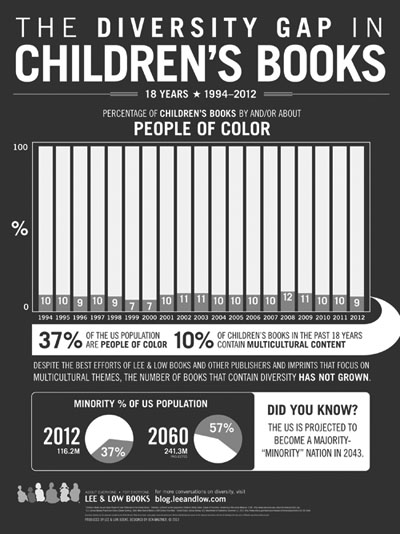
The Horn Book website has lots of material of interest to teachers. Here are some areas to explore. And follow us on Twitter: #lollysclass
|
Interviews with authors and illustrators Recommended books -- reviews and themed book lists |
School -- reading in school, author visits, and more Suggestion box: what else to you want to see in Lolly's Classroom? |
We need diverse books because of Ferguson
 source: http://news.stlpublicradio.org/
source: http://news.stlpublicradio.org/I have no idea what actually happened between Mike Brown and Darren Wilson in those unfortunate moments — and neither do you. Some people lie. Some cops lie. Evidence can be portrayed or interpreted in multiple ways. Let's stop pretending that we (or our news sources) are the sole possessors of indisputable facts. But don't let that cause you to simply walk away from this conversation because it's too important.
As complex as this tragedy and its responses are, there is one simple truth I don’t think anyone can deny: we are deeply divided.
At the root of this inability to truly understand each other is the limited nature of our individual experiences. Many people have not changed skin color, economic status, sexual orientation, gender, nationality, etc. And I think it’s fair to say that the average person’s closest friends share similar demographics. Of course, there’s a wide range of individual experiences beyond those simple categories.
So the sad fact is that most of our knowledge of other peoples' experiences comes from entertainment: TV, movies, news, and media. We learn about blackness from hip-hop, Asianness from kung-fu movies, middle-easternness from the coverage of the War of Terror, whiteness from — well, pretty much everywhere else.
Unfortunately, this is often false knowledge. These depictions are usually created to entertain, not to enlighten. When we’re kids, though, I doubt we realize this. We internalize what we see, and that subconsciously (or consciously) informs how we view and treat Others.
But in my opinion, books are different. Reading fiction forces you to inhabit another person’s consciousness. You see the world through her eyes. You walk in his shoes. You share in her triumphs and failures. While there are many other ways to cross that divide to a similar effect, I think fiction is one of the most simple, powerful, and practical ways to begin.
If we hope to understand each other and ourselves better, we need diverse books. As publisher Lee and Low has found, 37% of the U.S. population are people of color, but only 10% of published children’s books are about characters of color. If you think that number is as appalling as I do (one which doesn’t even account for differences beyond race), then do more than just talk about how much of a shame it is. Write, publish, represent, buy, sell, read, and recommend books by and about people with diverse experiences.
We need the power to see ourselves in others, to see others as ourselves. We need the ability to with identify Mike Brown AND Darren Wilson AND their families AND their friends AND…you get the idea.
We contain multitudes.
 From http://blog.leeandlow.com/
From http://blog.leeandlow.com/RELATED
ALREADY A SUBSCRIBER? LOG IN
We are currently offering this content for free. Sign up now to activate your personal profile, where you can save articles for future viewing.







Add Comment :-
Comment Policy:
Comment should not be empty !!!
Marguerite Ferra
I agree with you 100%. It is difficult to find children's or young adults' books with people of color or "different" cultures as the main characters. Many of the ones that you can find are pompous, stereotypical or just plain boring. I think that it is improving a little, but not by much. When my daughter was little, I searched for books that were not only about white, middle-class children, but there were few. It made me sad. And dolls... don't let me get on that subject. However, she didn't like dolls much, anyway. But, she did like to read.Posted : Dec 10, 2014 12:41